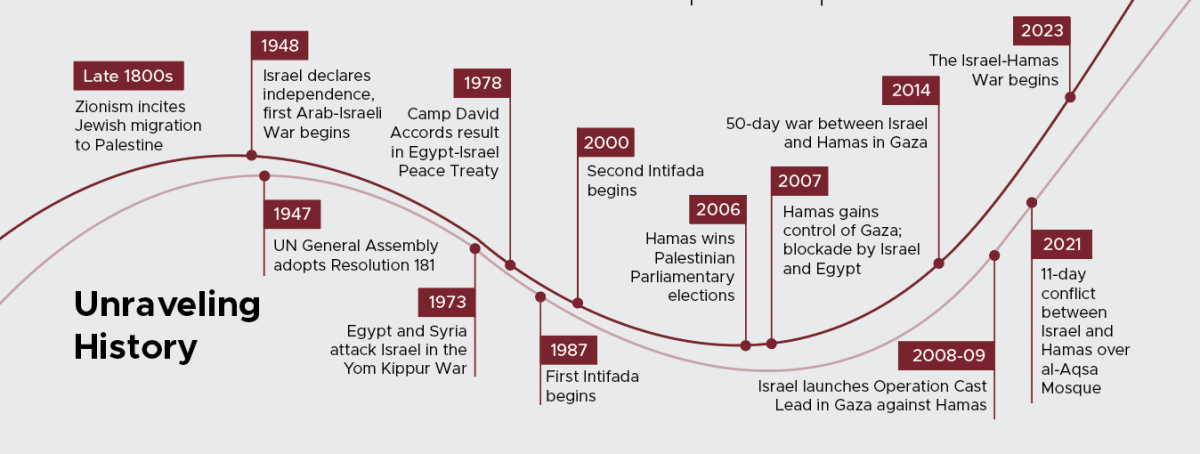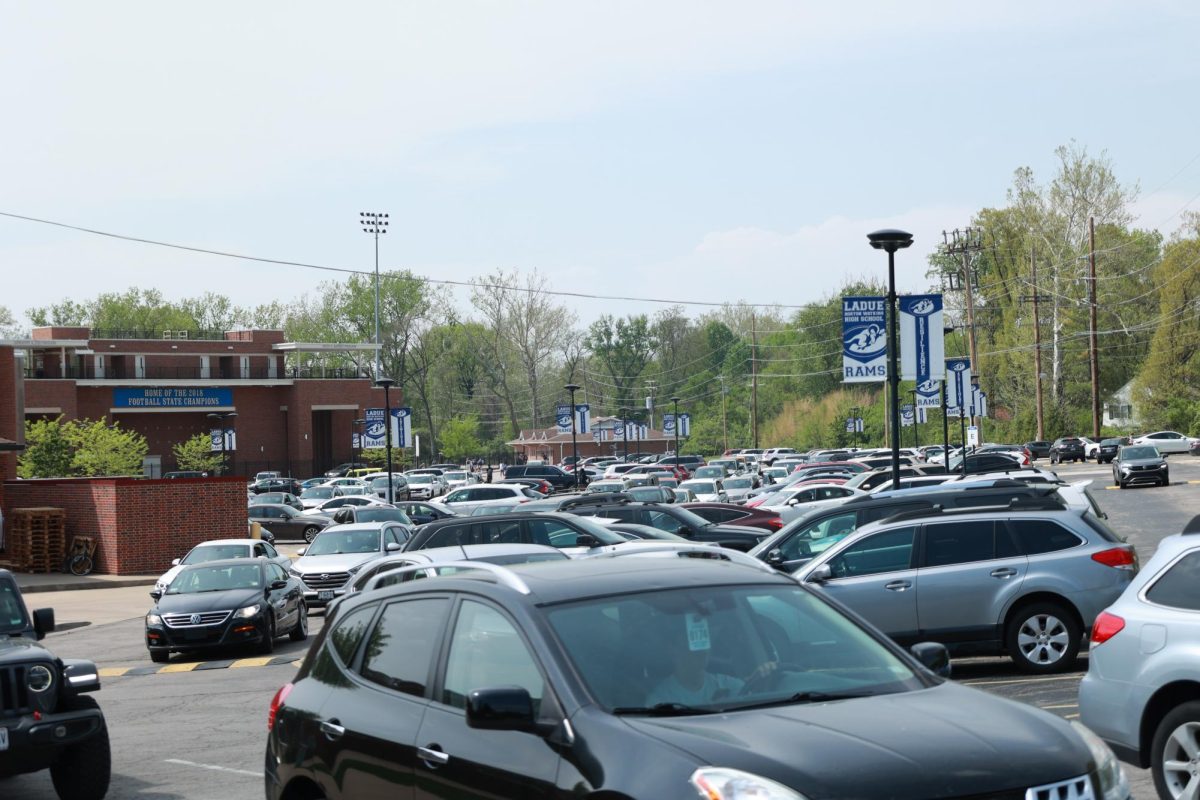Bloodshed extends far beyond Gaza in the wake of the Israel-Hamas War. Across the nation, tensions rose following the grim reports of online threats to Jewish students at Cornell University and the fatal stabbing of a 6-year-old Palestinian American, which police claim was the result of a hate crime. Since then, reverberations of violence, fueled by growing antisemitic and anti-Muslim sentiments in the U.S., continue to batter innocent Jewish and Palestinian Americans with ignorant and misdirected resentment.
From Oct. 7-24 alone, the Anti-Defamation League stated a 388% rise in antisemitic incidents in the U.S.—the highest since 2015. Similarly, the Council on American-Islamic Relations received an 182% increase in the reports of bias incidents and requests for help from Muslims during the same period.
Fearful of prejudice, many Jewish and Palestinian Americans have become avoidant of religious or cultural identification, foregoing visiting places of worship or wearing traditional clothing. Jewish Americans told CNN they are now hiding their kippahs, refusing to wear their Star of David necklaces and changing traditional of religious holidays out of fear of being killed, attacked or harassed.
For many Muslims and Palestinians, the current situation is reminiscent of the aftermath of 9/11, which resulted in an uptick of Islamophobic violence. Mr Mussa, a Palestinian American attendant at a rally at Pennsylvania’s State Capitol Complex remarked on the rise of Islamophobic sentiments: “This is emboldening individuals in this country to treat us like animals, to not see us as equals, to not see us as Americans,” he told BBC.
The existences of Jewish and Palestinian Americans should not be treated as such a controversial or political issue. Rather than forming rigid opinions based upon misinformation or cursory assumptions, we must shift the focus of the conflict to empathize with those affected in our communities and work to separate our political opinions from the way we interact with others.
This begins with gaining a fair understanding of the situation. However, much of the discourse regarding the conflict lacks not just empathy but the proper context as well. American politicians, media and culture remain stuck in the assumption that the latest conflict in Gaza ignited solely with Hamas’ assault.
However, the history dates back much further to the end of the 19th century with Resolution 181, known as the Partition Plan. The resolution divided the British Mandate of Palestine into Arab and Jewish states, eventually creating the State of Israel May 14, 1948. This would then spark the first Arab-Israeli war, largely between Israel and Egypt, which precipitated the division of territory into three parts, including the Gaza strip and displaced over 750,00 Palestinians.
Due to confounding factors such as the involvement of Britain, Egypt and others as well as the great historical and religious importance of the disputed land to both sides, it is impossible to place definitive blame on either party. Despite this, there are those who would prefer to blindly support one side over the other, ignoring fact and reality. Opinions are inevitable and valid, however, we must still recognize the actions that deserve to be condemned.
Currently, more than one million Palestinians have been displaced in the Gaza Strip and forced to live with a complete lack of water, food and medical supplies. The situation is dire, as air strikes have razed entire neighborhoods, schools, and mosques.
The devastation is not without fault from both sides. However, regardless of what you believe, asserting extreme support for one political power over another is irresponsible and wrongful. By blaming or justifying all of a government’s actions, you inherently dehumanize the people on the “opposing side.”
Here in the U.S., this dehumanization culminates in the generalization of Jewish and Palestinian people. As a result, prejudice and hate stemming from the Israel-Hamas war has bled into a much greater worldwide conflict; one very much removed from Gaza itself.
Unfortunately, this is far from the first, nor the last time we’ve allowed senseless prejudice to stain our nation, but, let this be a reminder that we must do better. We must recognize that Jewish and Palestinian individuals are far more than where they come from. We must recognize that they are people worthy of safety, respect and humanity.








